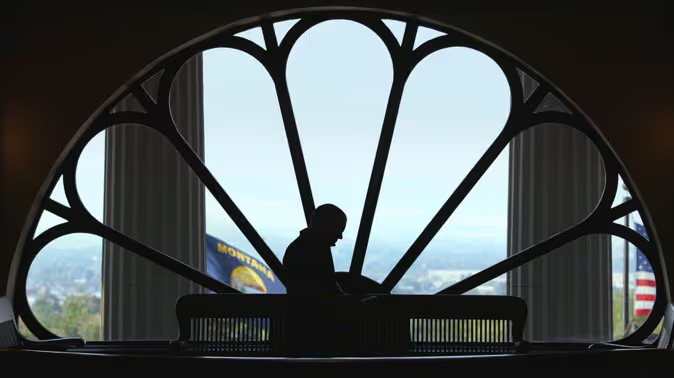Dark Money Delve Deeper Reading List
Adult Nonfiction

Mayer, Jane.Dark Money: The Hidden History of the Billionaires Behind the Rise of the Radical Right. Doubleday, 2016.
Why is America living in an age of profound and widening economic inequality? Why have even modest attempts to address climate change been defeated again and again? Why do hedge-fund billionaires pay a far lower tax rate than middle-class workers? In a riveting and indelible feat of reporting, Jane Mayer illuminates the history of an elite cadre of plutocrats—headed by the Kochs, the Scaifes, the Olins, and the Bradleys—who have bankrolled a systematic plan to fundamentally alter the American political system.
Teachout, Zephyr.Corruption in America: From Benjamin Franklin’s Snuff Box to Citizens United. Harvard University Press, 2014.
In 2010, one of the most consequential Court decisions in American political history gave wealthy corporations the right to spend unlimited money to influence elections. Justice Anthony Kennedy’s majority opinion treated corruption as nothing more than explicit bribery, a narrow conception later echoed by Chief Justice Roberts in deciding McCutcheon v. FEC in 2014. With unlimited spending transforming American politics for the worse, warns Zephyr Teachout, Citizens Unitedand McCutcheon were not just bad law but bad history.
Collins, Ronald K.L. When Money Speaks: The McCutcheon Decision, Campaign Finance Laws, and the First Amendment.Top Five Books, 2014.
On April 2, 2014, the U.S. Supreme Court struck down aggregate limits on how much money individuals could contribute to political candidates, parties, and committees. The McCutcheon v. FECdecision fundamentally changes how people (and corporations, thanks to Citizens United) can fund campaigns, opening the floodgates for millions of dollars in new spending, which had been curtailed by campaign finance laws going back to the early 1970s. When Money Speaks is the definitive—and the first—book to explain and dissect the Supreme Court’s controversial ruling in McCutcheon, including analysis of the tumultuous history of campaign finance law in the U.S. and the new legal and political repercussions likely to be felt from the Court’s decision.
Mutch, Robert E.Campaign Finance Reform: What Everybody Needs to Know.Oxford University Press, 2016.
In 2015, well over half of the money contributed to the presidential race came from roughly 350 families. The 100 biggest donors gave as much as 2 million small donors combined. Can we still say we live in a democracy if a few hundred rich families provide a disproportionate shares of campaign funds? Congress and the courts are divided on that question, with conservatives saying yes and liberals saying no. The debate is about the most fundamental of political questions: how we define democracy and how we want our democracy to work.
Shapiro, Bruce. Shaking the Foundations: 200 Years of Investigative Journalism in America. Thunder’s Mouth Press/Nation Books, 2003.
Great investigative journalism is present-tense literature: part detective story, part hellraising. This is the first anthology of its kind, bringing together outstanding (and often otherwise unavailable) practitioners of the muckraking tradition, from the Revolutionary era to the present day. Ranging from mainstream figures like Woodward and Bernstein to legendary iconoclasts such as I. F. Stone and Ida B. Wells-Barnett, the dispatches in this collection combine the thrill of the chase after facts with a burning sense of outrage.
Smith, Bradley A. Unfree Speech: The Folly of Campaign Finance Reform. Princeton University Press, 2001.
At a time when campaign finance reform is widely viewed as synonymous with cleaning up Washington and promoting political equality, Bradley Smith, a nationally recognized expert on campaign finance reform, argues that all restriction on campaign giving should be eliminated. In Unfree Speech, he presents a bold, convincing argument for the repeal of laws that regulate political spending and contributions, contending that they violate the right to free speech and ultimately diminish citizens’ power.
Broder, David S. Democracy Derailed: Initiative Campaigns and the Power of Money. Harcourt, 2000.
A new form of government is sweeping across America: the initiative process, available in half the states and hundreds of cities. Where once most state laws were passed by legislatures, now voters decide directly on such explosive issues as drugs, affirmative action, casino gambling, assisted suicide, and human rights. Ostensibly driven by public opinion, the initiative process is, in reality, manipulated by moneyed interests, often funded by out-of-state millionaires pursuing their own agendas. In this highly controversial book David Broder tells how this revolution came about.
